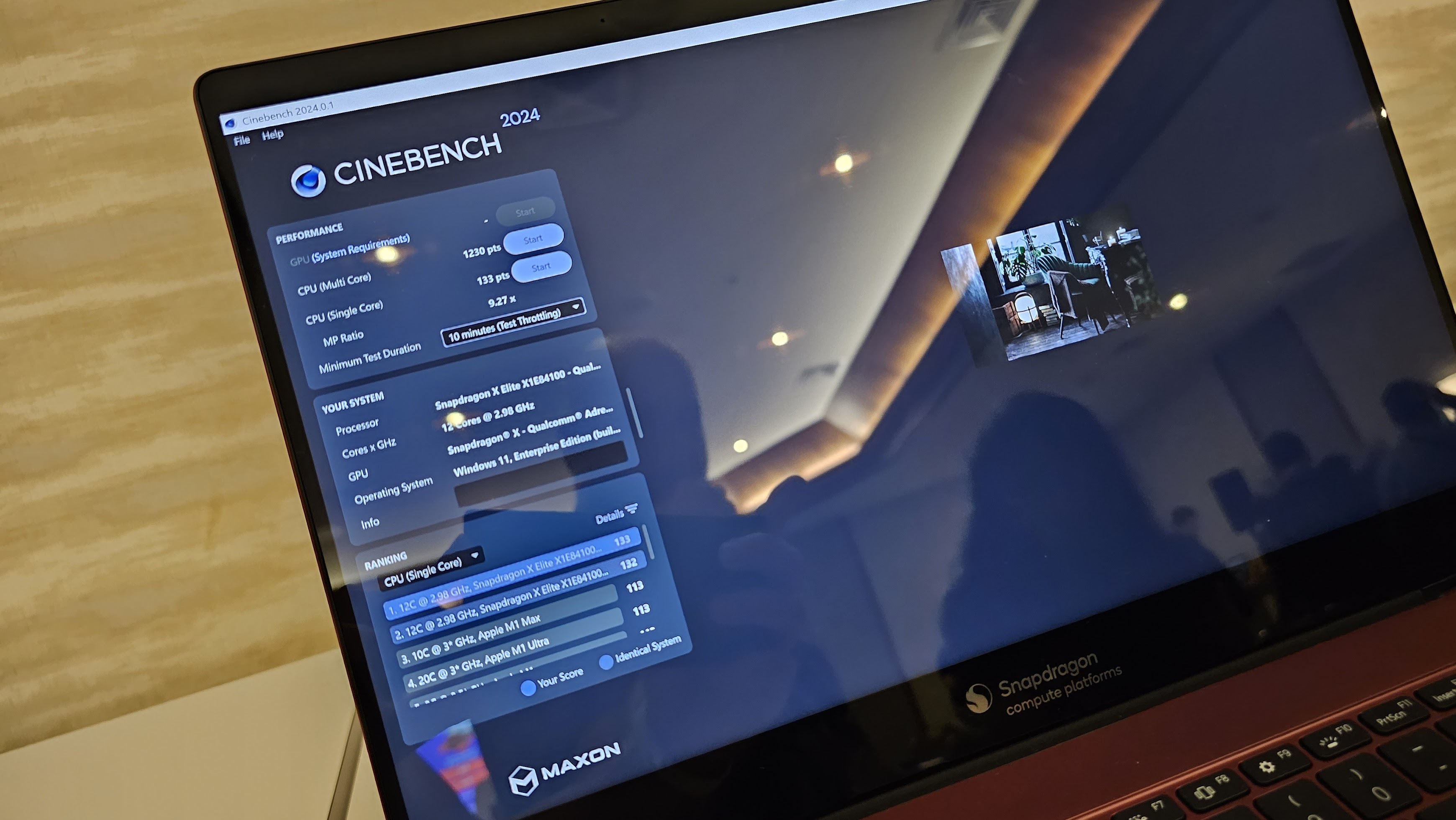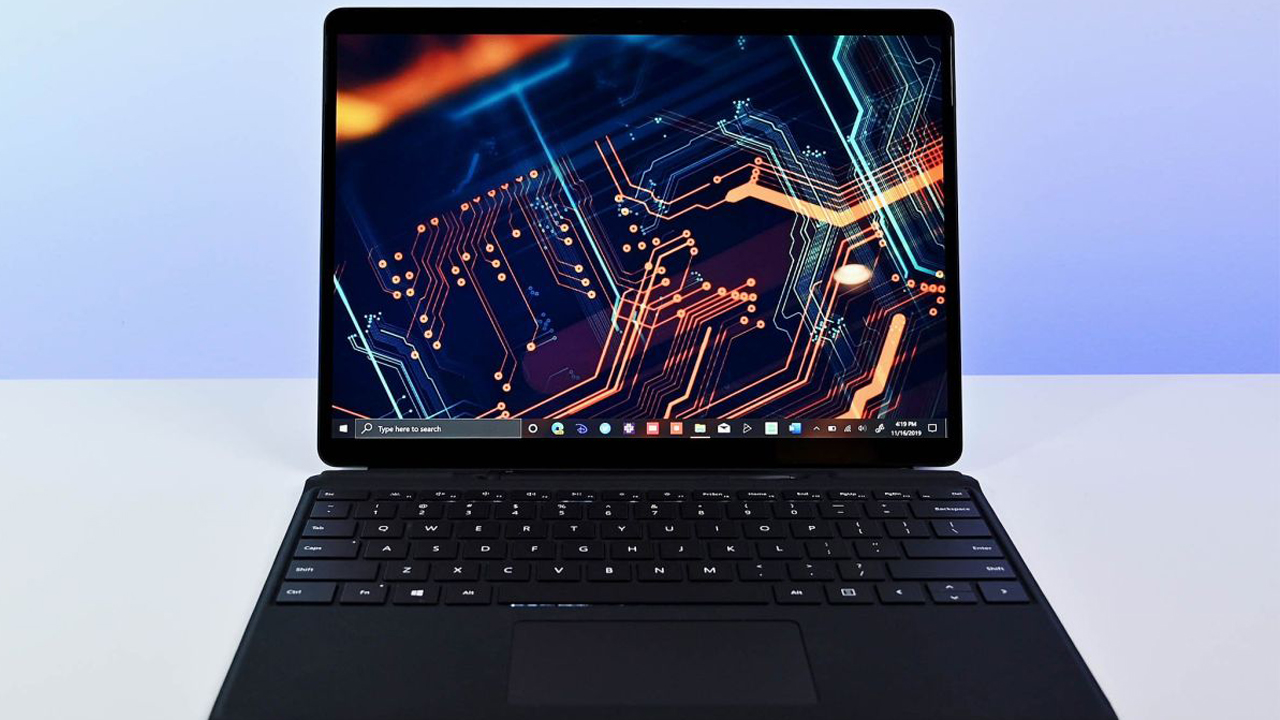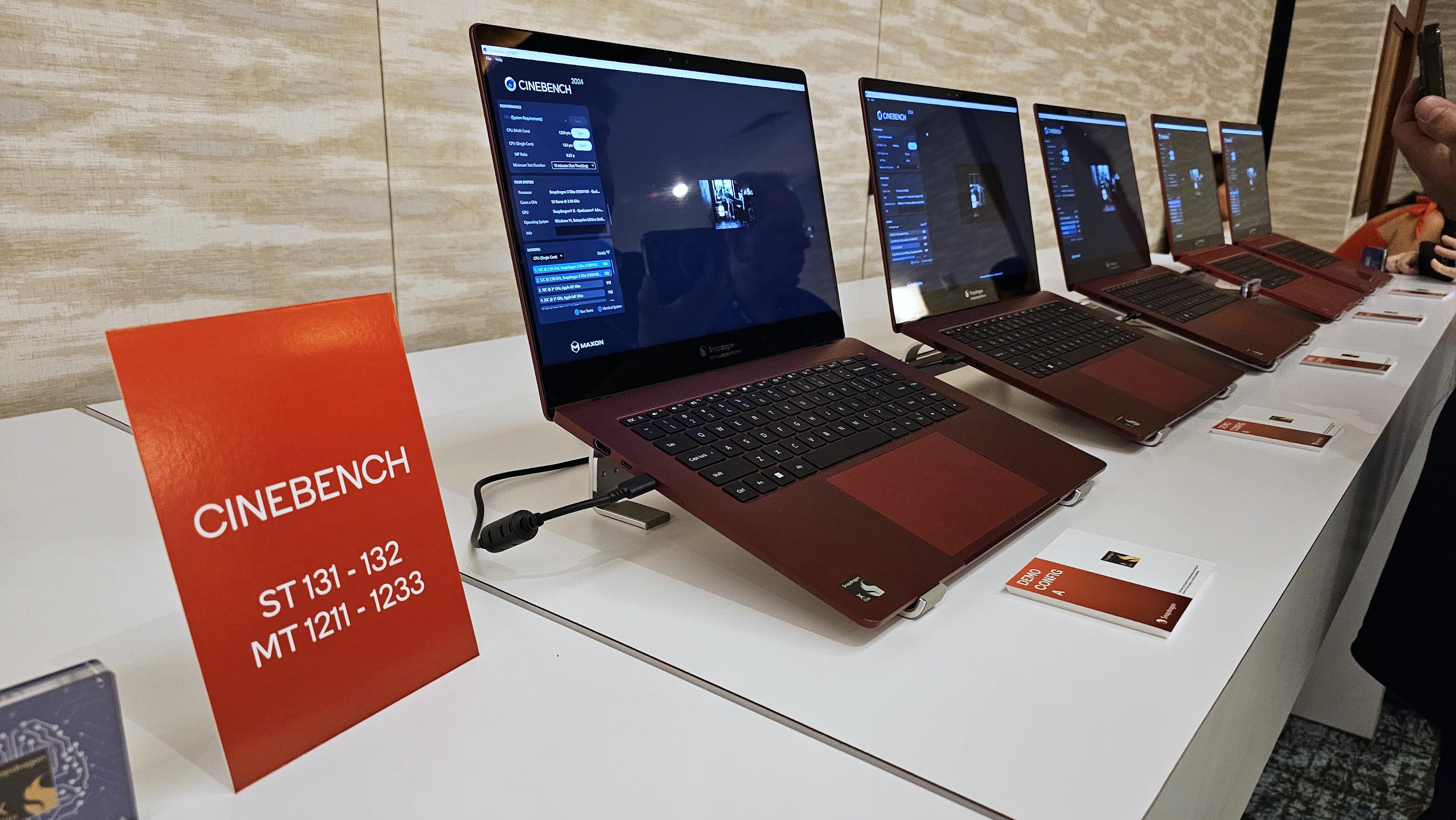
What you need to know
- Qualcomm's upcoming PCs will leverage emulation to run x86/64 Windows games at optimum performance.
- Benchmark data showcases a similar performance to the Radeon 780M when played on a Snapdragon X Elite device.
- The company is expected to release these much-anticipated devices later this year during the summer.
At the 2024 Game Developers Conference (GDC), Qualcomm indicated that Windows games should work on its anticipated Arm laptops. If true, x86 emulation and gaming should run perfectly on these devices without porting (via The Verge).
This isn't a new phenomenon either, as Apple has attempted something similar with its Rosetta 2 translation layer, which supports legacy x86 apps without negatively impacting performance. Apple Silicon cushions performance setbacks when running x86 apps on Arm PCs.
Admittedly, Apple's x86 emulation may encounter performance challenges when running games. And while it's possible to run legacy x86 titles on Apple Silicon, the performance aspect might pose a potential challenge.
As shared by The Verge, game devs will have three options to run existing Windows games on the new Qualcomm chip in Arm for Windows:
- They can port their titles to native ARM64 for the best CPU performance and power usage, since Qualcomm’s scheduler can dynamically lower the CPU’s frequency that way.
- They can create a hybrid “ARM64EC” app where Windows and its libraries and Qualcomm’s drivers run natively, but the rest of the app is emulated, for “near-native” performance.
- Or, they can do next to nothing, and their game should just work anyhow — using x64 emulation.
Qualcomm supports its premise by indicating that most Windows games are impacted by GPU-related performance issues more frequently, further citing that the performance of the GPU on a device isn't impacted by emulation.
To this end, Qualcomm has reportedly run tests on its Snapdragon X Elite laptops with several titles, including Control, Baldur's Gate 3, and Redout II. Emerging benchmark data showcases a similar performance to the Radeon 780M when played on a Snapdragon X Elite device.
And as it seems, we might not have to wait too long to confirm the authenticity of this bold statement, as Qualcomm is expected to ship its Snapdragon X Series devices later this year.
What is ARM64EC?

Microsoft announced ARM64EC back in 2021. The technology allows developers to mix and match code that runs natively on ARM or that runs in emulation. This gives developers the option to port their programs and games gradually to ARM or to have the base of a program run in emulation and certain components run natively on ARM hardware.
Before the release of ARM64EC, optimizing apps for Windows 11 on ARM devices was an all-or-nothing approach. Developers either fully embraced ARM and spent a lot of time optimizing their apps or left ARM on a shelf.
"Traditionally, rebuilding an app for ARM has meant recompiling the entire app. The result is a great native experience for the customer that unlocks the full power of the ARM device," said Microsoft in 2021. "However, from a developer perspective, porting an app can be all-or-nothing, since all the binaries within a process need to be rebuilt before a customer can see the benefit."
ARM64EC came out in 2022, giving devices like the Surface Pro X and Lenovo ThinkPad X13s a boost.
Later in 2022, Unity confirmed its commitment to bring Unity Player to Windows on ARM. As promised, developers gained the ability to target ARM devices with the rollout of Unity 2023.1.

Windows on ARM has gotten better over time, and 2024 could be the year that it comes into its own. Qualcomm has its Snapdragon X Elite processors on the way and Microsoft is set to take advantage of those chips with its upcoming Surface Pro 10 and Surface Laptop 6 (the non-business versions).
In his piece explaining why people shouldn't buy the new Surface Pro 10 or Surface Laptop 6, our Senior Editor Zac Bowden discussed the shift coming to Windows 11 on ARM:
"So, if you think you don't want a Windows on Arm device because of what you've heard about the platform before, just wait and give it another chance. Microsoft's goal this year is for Windows on Arm to become normalized in the PC space, with end-users not really able to tell the difference between either Intel or Arm performance and compatibility."
While we'll have to see the Snapdragon X Elite in the real world to confirm Qualcomm's claims, it appears that the combined efforts of Qualcomm and Microsoft may finally make Windows 11 on ARM ready for mainstream usage. Both general users needing PCs for productivity and PC gamers should be able to take advantage of Qualcomm's new chips and Microsoft's improvements of Windows 11 on ARM.







